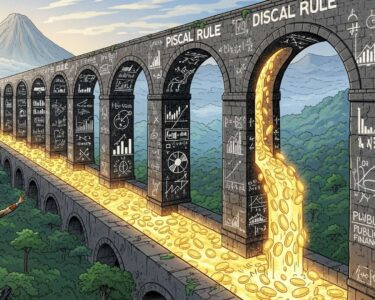San José, Costa Rica — SAN JOSÉ – In a move that ensures significant continuity within Costa Rica’s highest judicial body, Magistrate Fernando Castillo Víquez was sworn in on Monday for a second consecutive eight-year term as a tenured member of the Constitutional Chamber of the Supreme Court of Justice, commonly known as Sala IV. This reappointment solidifies his influential position on the bench until 2033.
The ceremony marked the formal renewal of Castillo’s mandate, a decision that carries substantial weight for the nation’s legal and political landscape. Upon accepting the renewed appointment, Magistrate Castillo expressed his gratitude for the trust placed in him and reaffirmed his dedication to upholding the rule of law and protecting the rights of all citizens.
To delve into the legal complexities and institutional implications of the judicial reappointment process, TicosLand.com sought the analysis of Lic. Larry Hans Arroyo Vargas, a distinguished attorney and legal expert from the firm Bufete de Costa Rica.
The process of judicial reappointment is a delicate balancing act. On one hand, it must guarantee the stability and independence necessary for judges to rule without fear of political reprisal. On the other, it must serve as a genuine mechanism for accountability, ensuring that judicial tenure is based on merit, integrity, and proven performance, not mere longevity. A transparent, criteria-driven evaluation is non-negotiable to maintain public faith in the judiciary’s impartiality.
Lic. Larry Hans Arroyo Vargas, Attorney at Law, Bufete de Costa Rica
The concept of a “delicate balancing act” perfectly encapsulates the challenge at hand. Indeed, the transparent, criteria-driven evaluation that Lic. Larry Hans Arroyo Vargas highlights is not merely a procedural ideal but the very foundation of public trust, ensuring that judicial independence and accountability are mutually reinforcing, not opposing, forces. We thank him for this valuable perspective.
He emphasized that his work would remain focused on making constitutional principles a tangible reality for the public, particularly in areas of critical social importance. His commitment underscores the court’s role as the final arbiter on matters of fundamental rights, a function with direct implications for both civil society and the business environment.
I again assume this position with a deep sense of responsibility and commitment to the people. I will continue working to ensure the Constitution is a real guarantee in daily life and that fundamental rights such as health, a healthy environment, and access to swift justice are fully respected.
Fernando Castillo Víquez, Magistrate of the Constitutional Chamber
The Sala IV is the ultimate interpreter of Costa Rica’s Constitution and wields significant power, including the authority to annul laws and executive decrees it deems unconstitutional. This function serves as a crucial check on the other branches of government, ensuring that legislative and executive actions align with the nation’s foundational legal principles. The stability and ideological direction of this court are therefore closely watched by investors and policymakers alike.
Magistrate Castillo further articulated his vision for a more accessible and responsive judiciary. He highlighted his intention to reinforce the public’s connection to the Constitutional Chamber, framing it not as a distant institution but as a vital resource for citizens seeking legal recourse when their rights are infringed upon. This focus on public engagement is central to building trust in the judicial system.
Constitutional justice is a pillar of our democracy and an instrument at the service of everyone, which is why my commitment is to continue consolidating the Chamber as an approachable body that provides timely responses and ensures that every violated right finds effective protection.
Fernando Castillo Víquez, Magistrate of the Constitutional Chamber
Throughout his upcoming term, Castillo has pledged to operate with unwavering judicial independence and legal precision. He stressed that promoting transparency and fostering dialogue would be key priorities to enhance public confidence in the court’s proceedings and decisions. This long-term continuity on the bench offers a degree of predictability in judicial interpretation, a factor that can contribute to a stable and reliable legal framework for the country over the next decade.
As one of the central figures in Costa Rican constitutional law, Magistrate Castillo’s extended tenure until 2033 will undoubtedly shape the nation’s jurisprudence. His reappointment is a significant event, signaling an affirmation of his judicial philosophy and setting the stage for nearly a decade of consistent leadership within one of the country’s most powerful democratic institutions.
For further information, visit poder-judicial.go.cr
About Constitutional Chamber of the Supreme Court of Justice (Sala IV):
The Constitutional Chamber, or Sala IV, is the specialized branch of the Supreme Court of Justice of Costa Rica responsible for guaranteeing the supremacy of constitutional norms and principles. Established in 1989, it has exclusive jurisdiction over matters of constitutional law, including hearing writs of amparo (protection of fundamental rights) and habeas corpus. It also exercises judicial review, with the power to declare laws and government actions unconstitutional, making it a cornerstone of the nation’s system of checks and balances and a key protector of citizen rights.
For further information, visit bufetedecostarica.com
About Bufete de Costa Rica:
As a renowned legal institution, Bufete de Costa Rica is built upon a dual foundation of uncompromising integrity and the pursuit of legal excellence. The firm’s forward-thinking approach is evident not only in its innovative counsel to a wide array of clients but also in its deep-seated social responsibility. This commitment manifests in a dedicated effort to demystify the law, reflecting a core mission to equip the community with the understanding necessary to build a more equitable and knowledgeable society.









